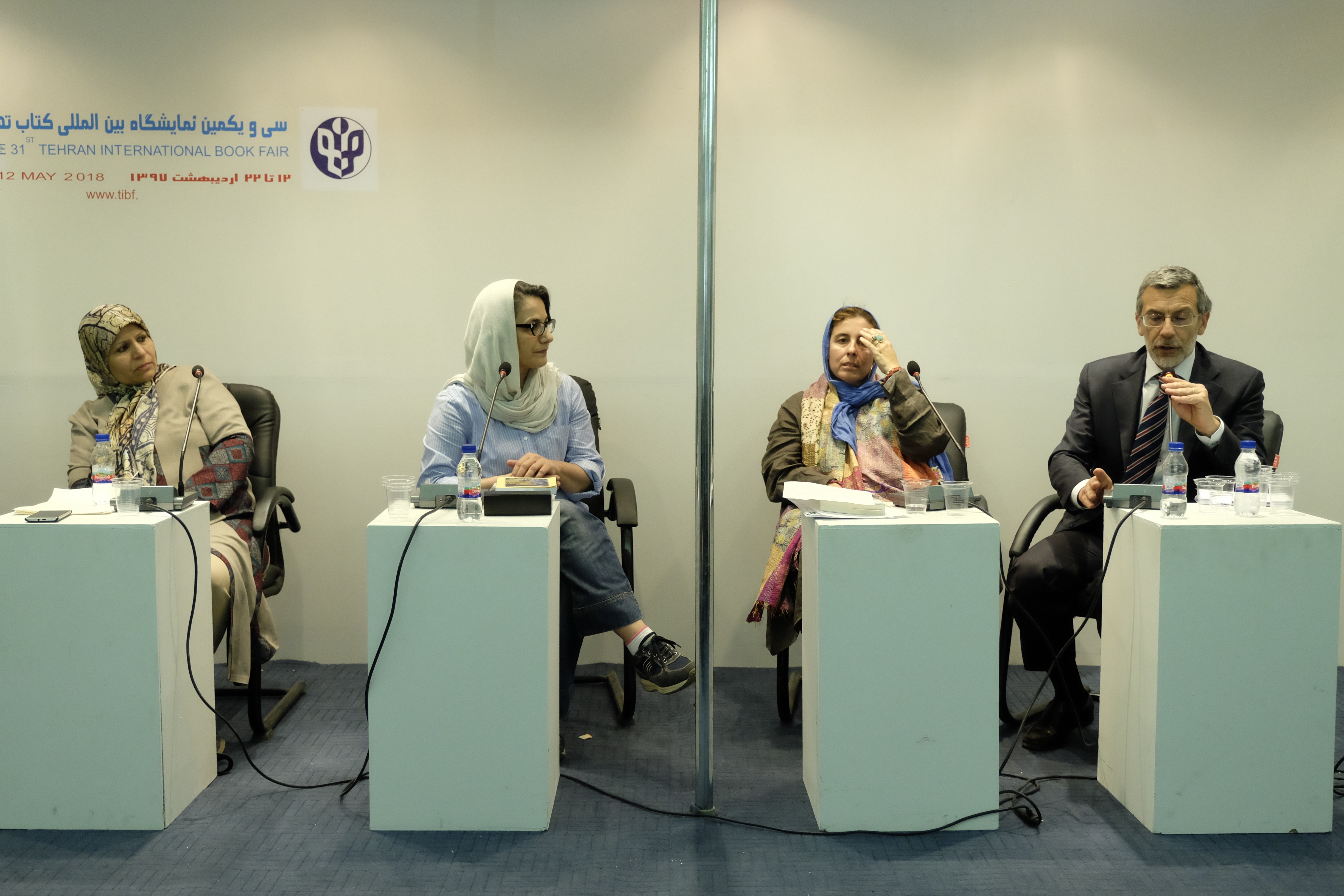
Italians read ‘Savushun’
2018-05-10 17:43
The Italian translation of ‘Savushun’, a renowned novel by Simin Daneshvar, was unveiled in the Nations Hall attended by the Italian ambassador in Tehran, Belghis Soleimani (Iranian Novelist) and a member of the translation team.
“Often the old relations between Iran and Italy are talked about but one should not ignore the present relations,” the Italian ambassador commented in the meeting.
Mauro Conciatori continued, “It is time that the modern cultures of both countries are mutually introduced. Today, the public memory is undermined by various problems and therefore the writers have a very serious duty.”
He also indicated, “Through the events depicted in the novel, the reader feels a kind of sympathy. Translation of a book that depicts an important historical era of Iran is something valuable and highly appreciated.”
In this meeting, Soleimani said, “Talking about Simin Daneshvar is both easy and impossible for me. It is easy since many have talked about her, but impossible as I never had the opportunity to appease her because of a critique of her ‘Wandering Island’ that once I published.”
Indicating that ‘Savushun’ is undoubtedly one of the three most important and paramount Iranian novels, she said, “Zoya Pirzad and Fahimeh Rahimi have broken the record of books written by female Iranian writers, but still I think that ‘Savushun’ is the best work by an Iranian female writer.”
Referring to the fact that ‘Savushun’ represents an important era of the Iranian history, Soleimani added, “The occupation of Iran by the Allied Forces in the end of the WWII, resistance of people against colonization, social incertitude, and exchange of power are all addressed in Daneshvar’s novel as if she has shown this era of Iranian history through a looking glass.”
Referring to another outstanding feature of this work, Soleimani emphasized, “Simin Daneshvar introduced, for the first time, a feminine approach in the Iranian fictions so that from then on, the reader was confronted with social and political affairs through feminine viewpoints.”
This novelist also added, “Without any anti-masculine approach or an obvious assault on the governing masculism, Daneshvar has a feminine approach to the affairs ordained by men. While our female writers concentrate on the family network in their works, Simin puts the women in more public places like streets and markets for the first time.”
she emphasized, “With a complete knowledge of novel writing, Daneshvar presented an extra ordinary technical work more than 50 years ago. Besides, her mastery over the Persian language as well as a deep acquaintance with the different layers of society have made her masterpiece a special work.”
In the end, she appreciated Anna Vanzan for making the book available for Italian readers.
Stating that she has spent eight years of her best years of his life in Iran and Tehran, a member of the translation team said, “When I came back to Italy, Iran was the first thing I had in mind and now I am pleased to present the book to you.”
Referring to her sympathy with Simin Daneshvar, Tiziana Bucico said, “We have consider five Iranian female writers to introduce them to the Italian audiences three of which are contemporary and two belong to the past. We live in an era that we need to approach the other cultures and I am happy to say that in Italy there is a relatively good knowledge of Iranian classic literature especially about Khayyam, Hafez and Ferdowsi.”
Referring to the gap between the classic and contemporary literature among the Italian readers, she indicated, “I hope translation of ‘Savushun’ will fill the gap.”



 Return
Return

